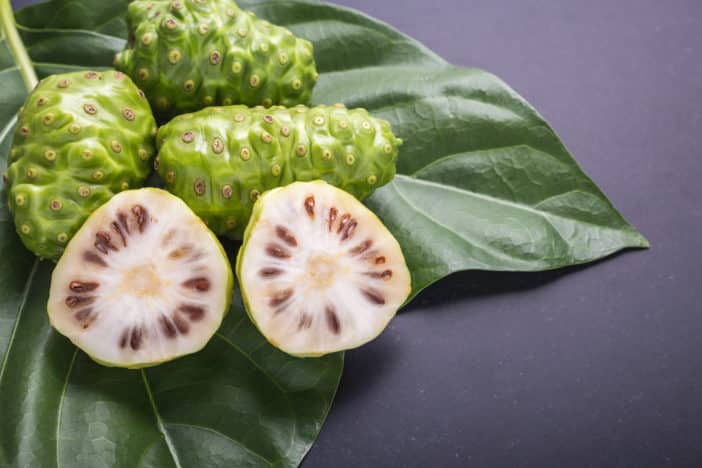Plant Adaptogens
More than 70 years ago, the Russian pharmacologist Nicolai Lazarev was already convinced that there are plant substances that help people to reduce or better compensate for emotional and physical stress. His extensive research eventually confirmed the thesis. Lazarev called these particular agents adaptogens, which refers to the English verb “to adapt”. Plant adaptogens enable the organism to adapt perfectly to higher stresses, making it less sensitive to possible overload. Thus, the active ingredients are not tranquilizers at all, but plant substances that make both the mind and the body more resistant.
Plant adaptogens have balancing, calming, and regulating effects if a person feels stressed. But conversely, the substances also possess restorative properties when a person feels powerless and drained. Adaptogens are thus among the most fascinating substances of nature, because the medicinal plants are able to adapt their effect exactly to the momentary state of the body and the psyche. In Chinese medicine and Ayurveda, plant adaptogens have been known for a very long time. Due to their harmonizing effect on the immune system, sleep and the soul, they have been valued in the Asian region for centuries. It was not until the research work of the pharmacologist Nicolai Lazarev that Europe also became aware of the positive properties of plant adaptogens. However, many years passed before they really became established in our country. For example, it was not until 2011 that the European Medicines Agency (EMA) certified the positive influence of the adaptogen Rhodiola rosea (rose root) on stress symptoms. Since then, researchers have been looking more and more into the amazing effect of these extraordinary medicinal plants. Meanwhile, it is also known that adaptogen plants provide valuable services in cosmetics.
How adaptogens work
Adaptogens act where the stress hormone cortisol is normally released: on the stress axis of our body, which extends from the brain down to the intestine and is also called the hypothalamic-pituitary-adrenal axis. Along this axis, cortisol normally affects numerous bodily functions. On the gastrointestinal tract, for example (“stress hits the stomach”), but also on pulse and blood pressure. If stress then becomes chronic at some point, it weakens our body permanently. The stress axis is a very important part of the human hormone system and regulates processes such as our mood, the immune system and digestion. It also controls our stress factor. Plant adaptogens regulate all these bodily reactions by influencing the release of cortisol and thus contribute to an improved inner balance. The special feature: Their effect does not only extend to a subarea in the organism, but is fundamentally holistic in nature.
In detail, this means that our body becomes more tolerant of psychological factors such as depression, tension or anxiety, and its resilience to environmental influences such as heat, cold and noise increases. In addition, it becomes more resistant to biological and chemical pollutants.
Side effects are usually not to be expected and plant adaptogens are also non-toxic. According to the current state of research, even an overdose has no negative consequences. Adaptogens can also be taken orally or used topically over a longer period of time, especially since they have no effect anyway on normal or only slightly altered bodily functions. This occurs only with an appropriate indication (for example, in stress phases).
Plant adaptogens in cosmetics
When we suffer from stress, it is also noticeable in our skin and hair. The tension makes us look old in the truest sense of the word. The skin looks sallow, the hair looks dull. And stress factors such as UV rays and smoking also take their toll on our skin.
Biologically active plant adaptogens are also able to ward off the external long-term damage caused by stress. They give our cells important impulses for regeneration and new formation, prevent the skin from drying out and make it more supple. Adaptogens also help the skin to adapt better to daily stresses and become more robust. The substances help to maintain a youthful appearance and even have a certain anti-aging effect, as they can improve the skin’s micro-relief. And they now also have a firm place in hair care, because plant adaptogens help to soothe the scalp and make the hair appear stronger and more vibrant again.
The most important known plant adaptogens at a glance
Ginseng (Panax ginseng)
Ginseng is also often referred to as the “king of plant adaptogens” because it improves mental performance and promotes individual stress resistance. It has been used in Asian medicine for thousands of years. No wonder, because ginseng has a positive influence on our well-being and happiness hormones! The ginseng root is rich in ginsenosides and contains valuable vitamins (especially from the B group) as well as iron, calcium, copper, phosphorus, magnesium and zinc. It also contains amino acids and trace elements such as silicon and selenium. It is not for nothing that ginseng is called the “plant of vitality”.
Noni (Morinda citrifolia)
The noni fruit from the tree of the same name, which is also known as the “Indian mulberry bush”, thrives mainly in the coastal regions of western India and Central America. It is one of the most important suppliers of essential nutrients and is rich in enzymes, vitamins, secondary plant compounds, proteins, trace elements and minerals. These have an anti-inflammatory effect and possess antioxidant properties. They protect the body and thus also the skin from the dreaded free radicals. In addition, noni is also very popular among athletes, as it has a regenerating and endurance-enhancing effect.
Shiitake
Shiitake mushrooms are not only delicious edible mushrooms, but they are also among the most effective medicinal mushrooms in Chinese medicine. Their ingredients serve as highly effective adaptogens, because they are attributed, among other things, a positive influence on the intestinal flora. They also help regulate blood lipid levels and strengthen the immune system.
Reishi/Ling-Zhi
Unlike the shiitake mushroom, the reishi mushroom is not an edible mushroom, but it has long been used as a medicinal mushroom. It was also considered a talisman in Asia in earlier times. Its properties are impressive. For example, it has the ability to alleviate sleep problems. In addition, the Reishi, which is known to us under the name “Shiny Lackporling”, contains a lot of valuable adaptogens. These counteract aging factors such as cortisol excess, free radicals and stress and thus have an anti-aging effect. They are also said to be able to help with inflammatory processes.
Maitake
The Maitake mushroom (common rattling sponge) has a high status in traditional Chinese medicine, because its ingredients and adaptogens can help with hypertension, diabetes and obesity, among other things. It is also popular for treating complaints in the upper gastrointestinal tract and for treating hemorrhoids. In addition, the adaptogens in the maitake mushroom help calm the nerves.
Almond mushroom
Almond mushroom is considered a vital mushroom and has an immune-regulating effect. The physical and mental resistance is improved in the long term, the risk of allergies decreases in return. The contained adaptogens are responsible for this. The medicinal effect of the almond mushroom has already been proven in studies. According to current research, its adaptogens even have a cancer-inhibiting or cancer-preventing effect.
Schisandra
The Chinese lime tree, also known as Schisandra, bears berry-like fruits that are believed to have healing and toning properties. The fruits contain many adaptogens: first and foremost, vitamins E and C, but also valuable minerals. Schisandra is said to be able to balance skin inflammations and is often used as a natural UV filter in sun protection products.
Rose root
Rose root (Rhodiola rosea) is used quite frequently in alternative medicine. The adaptogens it contains can ultimately help increase performance and help the body relieve stress. In cosmetics, rose root is especially useful for sunken contours and wrinkles. Plants adaptogene stimulate elastin and collagen formation, making the skin look firmer and smoother in the long term.
Ashwaganda (Sleepberry)
Ashwaganda is not nicknamed sleep berry for nothing, because it has a narcotic effect. At the same time, the root, which is usually ground into powder, also promotes a clear, calmer mind. Great side effect: the adaptogens of the sleeping berry rejuvenate the complexion.
Tulsi
Tulsi, or Indian basil, is especially helpful against depression, fatigue, asthma, and stress. This ancient mystical plant belongs to the labiates family and contains lots of plant adaptogens. It has immunostimulant and antibacterial effects and is traditionally used for flu, colds and febrile illnesses.
Jiaogulan (Gynostemma pentaphyllum)
Thanks to the adaptogens it contains, the gourd plant is nicknamed the “herb of immortality”. More than 100 saponins have been identified in the plant so far. It can expel heat, refresh the mind, lower blood sugar levels and protect liver function.
Maca
The South American root tuber maca can specifically support the body’s endurance and resilience. Adaptogens give the body renewed energy and help relieve stress.
Kalmegh
Kalmegh is an important medicinal plant in Indian and Chinese medicine. It helps with respiratory infections as well as fever and relieves digestive problems. Plant adaptogens have antibacterial, blood sugar lowering, antiviral, tonic and strengthening properties. Main ingredients are di-terpene lactones, sesquiterpenes and flavonoids.
Amla
Amla or Indian gooseberry is a true immune booster thanks to its adaptogens. It tightens the skin and helps fight acne, plus it can reduce the appearance of wrinkles and fine lines. The antioxidant properties slow down the general aging process.
We at Cosmacon like to work with these adaptogenic agents:
| Name | Company Name | INCI | Comment |
|---|---|---|---|
| Ginseng Extract | The Garden of Naturalsolution Co., Ltd. (former Natural Solution Co.,Ltd.) | Panax Ginseng Root Extract | |
| RHODIOLA EXTRACT | DKSH | Cyclodextrin, Rhodiola Rosea Root Extract | |
| BiotyFerment ASHWA | Lucas Meyer Cosmetics | Water, Glycerin, Withania Somnifera Root Extract | |
| Schisandra Fruit CO2-to extract, Variety Chinensis - 164.003 | Flavex Naturextrakte GmbH | Schisandra Chinensis Fruit Extract | |
| BiotyFerment ASTRA | Lucas Meyer Cosmetics | Water, Glycerin, Astragalus Membranaceus Root Extract | |
| CENTELLA REVERSA | Vytrus Biotech | Centella Asiatica Callus Conditioned Media, Glycerin, Citric Acid | |
| Rhodiactive-ANB | The Garden of Naturalsolution Co., Ltd. (former Natural Solution Co.,Ltd.) | Rhodiola Rosea Root Extract | |
| AYUREDI | Laboratoires Expanscience | Propanediol, Water, Ocimum Sanctum Leaf Extract |
Plant adaptogens in Cosmacon cosmetic products
The active ingredients harmonize many physiological functions and have an extremely positive influence on the skin. Whether against stress or as a veritable elixir of youth, adaptogens make the body and thus also our skin more resistant and resilient. Plant adaptogens are therefore ideal for high-quality cosmetics, which we develop individually for you!
Sources:
Adaptogenic and Anxiolytic Effects of Ashwagandha Root Extract in Healthy Adults: A Double-blind, Randomized, Placebo-controlled Clinical Study.; Cureus. 2019 Dec 25;11(12):e6466.

